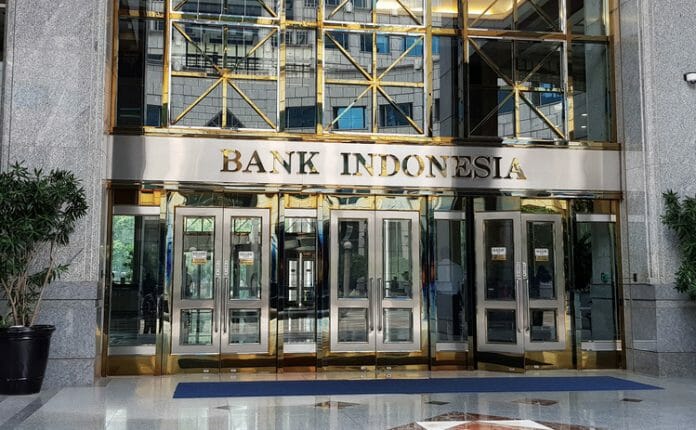Indonesia’s central bank kept interest rates unchanged on Thursday, as expected, saying current levels are sufficient to keep inflation in check, while strengthening efforts to stabilise the rupiah currency.
Bank Indonesia (BI) plans to issue new rupiah-denominated securities, using its holdings of government bonds as the underlying asset, as a new monetary instrument aimed at attracting foreign portfolio capital flows, Governor Perry Warjiyo said.
BI kept the benchmark 7-day reverse repurchase rate at 5.75% for its seventh straight monthly policy review, as widely expected by economists surveyed by Reuters. Its two other main rates were also kept unchanged.
BI has been trying to balance currency stability, keeping inflation in check and maintaining growth momentum in Southeast Asia’s largest economy as exports fall amid softening commodity prices and weakening global growth.
There have been calls for BI to start considering rate cuts to shore up growth after inflation cooled to within BI’s target earlier than expected, but some economists say further tightening is still necessary to narrow rate differentials with U.S. assets and prevent capital outflows.
Guarding the rupiah “is our way to protect the domestic economy, inflation and growth from global spillovers,” Warjiyo told reporters.
“All countries are experiencing currency depreciations, our focus is to stabilise the exchange rate through intervention,” the governor said, especially by intervening in the spot and domestic non-deliverable forward markets and relying on its new securities.
“We have over 1,000 trillion rupiah of government bonds that we can use as underlying assets for the Bank Indonesia Rupiah Securities,” he said, adding that the notes will have 6-, 9- and 12-month maturities and are to be offered from Sept. 15.
The new notes can be traded by the public in secondary market, including by foreign investors.
The rupiah, which had gradually fallen since mid-July to its weakest levels since March, strengthened 0.3% against the U.S. dollar ahead of the announcement and was steady after the rate decision.
The rupiah is still up about 2% so far this year, but currency and bond yields have come under pressure amid rising U.S. Treasury yields and economic weakness in China, a major trading partner.
On the other hand, while Indonesia’s growth outperformed market expectations in the second quarter amid rising household spending, the outlook for the remainder of 2023 remains bleak. Exports are contracting while a general election scheduled for February 2024 has held back investment decisions.
Inflation slowed in July to 3.08%, roughly in the midpoint of BI’s 2% to 4% target range.
BI’s rate is directed at guiding inflation and domestic growth, Warjiyo said.
“BI signalled a preference to tap a confluence of intervention efforts, measures to draw more dollar inflows … to address the more pressing currency depreciation pressures,” said Radhika Rao, economist with DBS Bank, calling the rate decision “the middle path to balance stability and inflation priorities”.
BI kept its 2023 economic growth forecast at a range of 4.5% to 5.3% and continued to predict inflation will stay within its target range this year and next, when the target will be moved to 1.5% to 3.5%, according to Reuters.
“With inflation set to remain firmly within target and downside risks to the economic outlook elevated, we remain convinced that interest rate cuts will be starting from October,” said Shivaan Tandon of Capital Economics.
Meanwhile, analysts at Bank Danamon said they expected BI’s monetary stance to remain neutral unless another Fed surprise rattles markets and caused a deep weakening in the rupiah.









